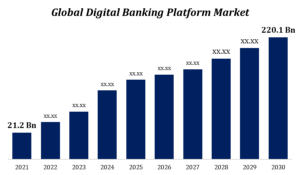Decentralized Finance (DeFi): Unleashing the Power of Blockchain for Financial Services
Decentralized Finance (DeFi) is reshaping the landscape of traditional financial services by harnessing the transformative potential of blockchain technology. By leveraging blockchain’s transparency, security, and accessibility, DeFi is creating a decentralized ecosystem where financial transactions, lending, borrowing, and more can be conducted without intermediaries. In this article, we will explore the concept of DeFi, its key components, benefits, and its role in revolutionizing the future of financial services.
Understanding Decentralized Finance (DeFi):
- Decentralization: DeFi eliminates the need for intermediaries like banks and brokers, enabling peer-to-peer transactions directly between users.
- Smart Contracts: DeFi relies on programmable smart contracts that automate and execute transactions when predefined conditions are met.
- Blockchain Technology: Built on blockchain networks like Ethereum, DeFi provides a transparent and immutable ledger of financial activities.
Key Components of DeFi:
- Decentralized Exchanges (DEX): DEX platforms enable users to trade cryptocurrencies directly without intermediaries, fostering a more open and transparent trading environment.
- Lending and Borrowing Protocols: DeFi allows users to lend their assets and earn interest, while others can borrow funds by locking collateral, all governed by smart contracts.
- Stablecoins: Stablecoins pegged to real-world assets like fiat currencies offer stability and serve as a bridge between traditional finance and the crypto world.
Benefits of DeFi:
- Accessibility: DeFi eliminates geographical barriers, enabling users from around the world to access financial services without traditional account requirements.
- Transparency: Blockchain’s transparency ensures that financial transactions are visible and verifiable, reducing the potential for fraud and manipulation.
- Lower Fees: DeFi transactions often come with lower fees compared to traditional financial intermediaries, enhancing cost-effectiveness.
- Financial Inclusion: DeFi empowers individuals without access to traditional banking services, bridging gaps and promoting financial inclusion.
- Programmable Finance: Smart contracts enable the creation of complex financial instruments and protocols, offering customizable solutions.
Challenges and Considerations:
- Security: While blockchain enhances security, vulnerabilities in smart contracts can still lead to hacks and vulnerabilities.
- Regulatory Uncertainty: The evolving regulatory landscape poses challenges for DeFi’s legal status and compliance.
- User Education: Understanding the complexities of DeFi platforms, smart contracts, and risks requires education for users.
Future Directions:
- Interoperability: Efforts are underway to enable seamless interaction between different DeFi platforms and blockchain networks.
- Scalability Solutions: Enhancing the scalability of blockchain networks will accommodate growing DeFi demand without compromising performance.
- Regulatory Frameworks: Collaboration between the DeFi community and regulators can help create a balanced framework that fosters innovation and protects users.
Decentralized Finance (DeFi) is reshaping financial services by leveraging the power of blockchain technology. As the DeFi ecosystem continues to expand and mature, it has the potential to democratize financial access, reduce intermediaries, and foster a more inclusive and transparent financial landscape. While challenges exist, the promise of DeFi lies in its ability to revolutionize traditional finance, offering users a more open, efficient, and user-centric way to manage their financial assets and transactions.


































